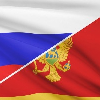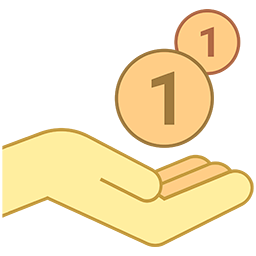"Days of Music of Don Branco" in Kotor
This is an automatic translation.
Click here to read the publication in the original language.
Days of music by Don Branco in Kotor
Great power of art
Within the framework of the annual, the traditional, seventh festival "KotorArt", it is also traditionally held in Kotor under the common title "Don Brankovi dani muzike" - "Days of Music of Don Branco".
The history of the KotorArt festival has already been briefly covered on the SVE.ME portal, and today let me tell you about who Don Branko is and what is Don Brankovi dani muzike.
First of all, by the reference "Don" we can understand that Don Branco was a priest. Croatian Catholics adopted many of their customs directly from Italians, where the parish priest was called "Don (Name)". "Don" means "sir" or a polite "lord", and is not a religious dignity. This is rather an informal respectful treatment, which has become traditional for Italian and Croatian Catholics. In our case, we will talk about Dalmatia, a historical region, of which Boka Kotorskaia and its pearl Kotor were a part.
Here, on the 8th of May, 1952, the future father of Branko Sbutega, the brother of the famous Montenegrin diplomat and patriot Anton Sbutega, was born to the father of the Croat and the mother of the Montenegrin.
According to the Serbian version of Wikipedia, his father was a Catholic by faith, and his mother was Orthodox for baptism, so he was brought up in a spirit of tolerance, which was reflected in his philosophy of life. Primary school and grammar school the future Montenegrin priest, intellectual, writer and philosopher graduated in his native city, in parallel with the gymnasium mastered the course of the music school, played the cello, piano and organ.
He received his higher medical education in Belgrade, and studied theology in Zagreb, Vienna and Rome. On July 15, 1979, he was ordained a priest in the island church of the Godparent Church "Gospa od Skrpjela" in Perast, in 1982 he became the rector of the parish of St. Eustathius in Dobrota.
Particularly noticeable was his peacekeeping activity in the years of the so-called "peace". "Yugoslav crisis" during the break-up of the SFRY, as well as propaganda of religious tolerance. Biographers also note that Don Branco was a fighter for the autonomy of Montenegro and for the rights of Croatian minorities, as a result of which he was repeatedly attacked by various extremist organizations, which forced him to leave the country for some time. In exile, Don Branco founded a fund to help refugees.
In 1996, Don Branco returned to his hometown and became the founder of the largest regional art festival "KotorArt".
He was also a great supporter of environmental protection, co-authored a book on old literature by Boki Kotorska, author of numerous articles in the media, and in 2006 saw his book "Kurosavin nemir svijeta" (translation of the title of the author's book) - ".. small in volume, but great in content ..", as they say in the annotation to the premiere edition. In his foreword, Don Branco writes: "I fully realize the extent to which my personal destiny is small and insignificant for history, but first of all I have only myself, not the whole story. And so, while in the vast stories of history a bloody and tragic drama of space and time is being written, I, in the plot of my own biography, try to write something that my own life will continue to make something beautiful and significant. This is the only thing that anyone can and should do, regardless of the historical context and taking into account the historical context. " (Translation of the author of the article).
In 2007, the posthumous edition of the sonnets of Don Branco Sbutega "Self-sufficiency" was published; in memory of him, traditionally, events are held in Kotor under the general title "Don Brankovi dani muzike" within the framework of the KotorArt art festival founded by him.
Don Branko Sbitega died in Kotor on May 27, 2006. He was buried at the wall of the church of St. Eustache (crkve svetog Eustahija), whose zhupan (parish priest) he had been for a long time, in the Kotor suburb of Kindness.
This is how Professor Ratimir Martinović, pianist and art director of the KotorArt festival, characterizes Don Brankovi dani muzike: "It is in this tradition, on the way from point A to point B," KotorArt "and" Don Brankovi dani muzike " always knew the shortest road with an exalted name - Art.
Milorad Pavic once wrote: "The truth expressed before time is not yet the truth." Fortunately, this thesis is not yet an absolute truth, because, yes, we were condemned to stagnation, routine and withering. Art is that unique of all great truths that do not change in time, do not distinguish between religious differences, political systems, language and other barriers.
The musical art that we give you in 16 major and in six additional programs of "Musical Days of Don Branco" is the truth through which we invite you with us, to witness with all your heart the eternal renewal of the concerts in the unique atmosphere of the ancient Kotor and the wonderful "Boka planet".
#AleksandarKologrivov
This is an automatic translation.
Click here to read the publication in the original language.






































